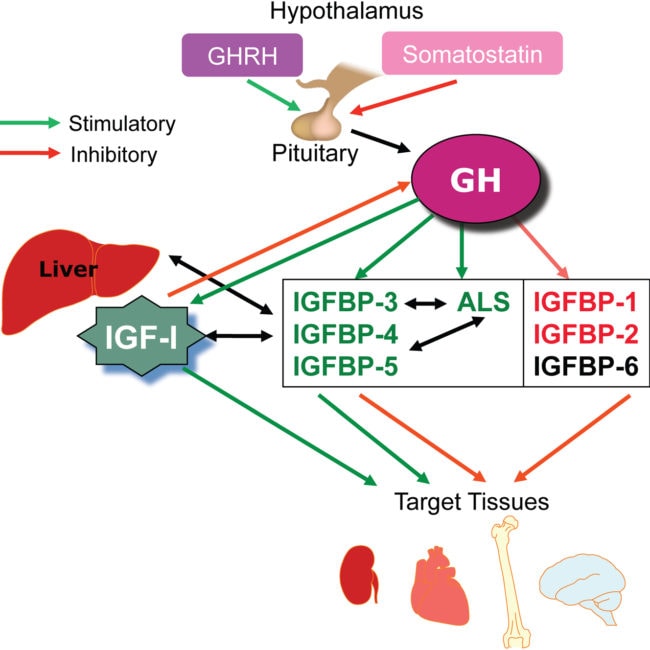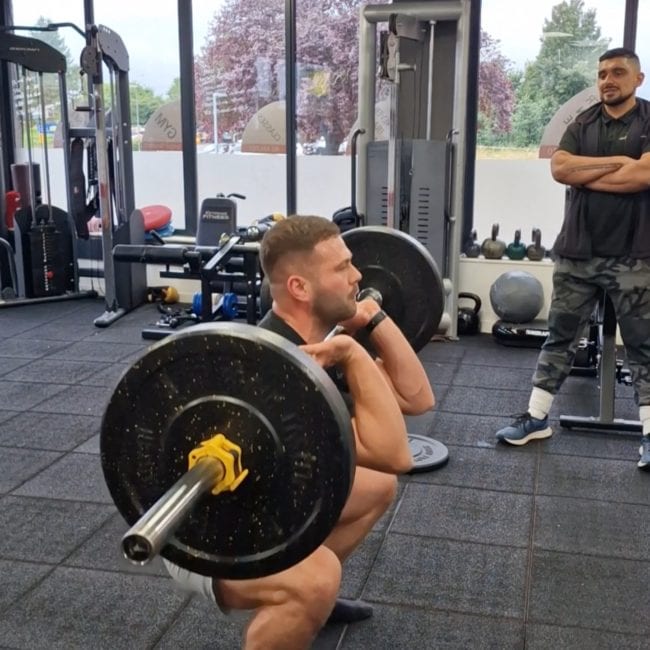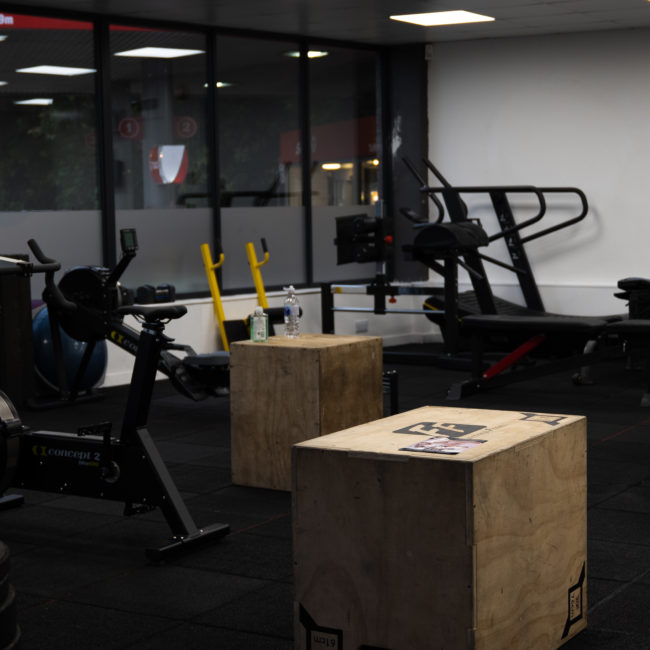Looking to embark on a transformative fitness journey but not sure where to start? Look no further. In this comprehensive guide, we will unveil the ultimate personal training plan, designed to empower you to achieve your fitness goals effectively and sustainably. Whether you’re aiming to build strength, lose weight, or enhance overall well-being, this step-by-step roadmap will provide you with the tools and knowledge to kickstart your fitness journey.
Discover how to craft a personalized workout routine, master fundamental exercise techniques, and harness the power of nutrition to fuel your body for success. You’ll also uncover invaluable tips for staying motivated and overcoming common obstacles along the way. With my expert guidance, you’ll be primed to unleash your full potential and redefine what your body is capable of.
Get ready to elevate your fitness game and unlock the best version of yourself. It’s time to embrace the journey to a healthier, stronger, and more vibrant you!
Prepare a plan, or prepare to fail
Understanding the importance of a personal training plan
Embarking on a fitness journey without a clear plan is like setting sail without a map. A personalized training plan serves as your navigational tool, guiding you toward your desired destination of improved fitness and well-being. It provides structure, purpose, and a roadmap to success, ensuring that every step you take is purposeful and effective kind of like a business plan!
A well-crafted personal training plan takes into account your unique goals, current fitness level, and individual preferences. It acts as a blueprint for your workouts, helping you optimize your time and effort in the gym while minimizing the risk of plateaus or injuries. By understanding the significance of a personalized training plan, you set yourself up for long-term success and sustainable progress.
Creating a plan tailored to your specific needs empowers you to take ownership of your fitness journey, setting the outcome for meaningful and transformative results. It’s the first foundational step toward realizing your full potential and achieving the best version of yourself.
Setting realistic fitness goals
Setting clear and realistic fitness goals is the cornerstone of any successful personal training plan. Whether your objective is to build muscle, shed excess weight, improve endurance, or enhance overall health, defining specific, measurable, achievable, relevant, and time-bound (SMART) goals is essential for staying focused and motivated throughout your journey.
When setting your fitness goals, consider both short-term and long-term objectives to provide a clear roadmap for your progress. Short-term goals serve as stepping stones, providing regular checkpoints to celebrate achievements and stay motivated. Long-term goals, on the other hand, offer a compelling vision of your ultimate fitness destination, driving your ongoing commitment and determination.
By establishing realistic goals that align with your abilities and lifestyle, you set yourself up for success while minimizing the risk of frustration or burnout. Remember, your goals should be challenging enough to inspire growth but attainable enough to maintain your momentum and enthusiasm.
Assessing your current fitness level
Before diving into the specifics of your training plan, it’s crucial to assess your current fitness level accurately. This evaluation provides valuable insights into your strengths, weaknesses, and areas for improvement, laying the groundwork for a customized and effective workout regimen.
Assessing your current fitness level involves various components, including cardiovascular endurance, muscular strength and endurance, flexibility, and body composition. By understanding where you stand in these key areas, you can tailor your training plan to address your unique needs and maximize your progress.
Additionally, consider factors such as your exercise history, injury or mobility limitations, and any underlying health concerns. This comprehensive assessment sets the stage for creating a training plan that not only challenges you but also respects your body’s current capabilities, ensuring a safe and sustainable approach to fitness.
What is your current 5KM?
What is your 1RM for Squat, Deadlift or Bench?
Knowing these numbers will help you create a plan to work towards using methods of percentages or RIR or any method infact!
Designing a personalized workout routine
Armed with a clear understanding of your goals and current fitness level, it’s time to craft a personalized workout routine that aligns with your aspirations and abilities. A well-designed training program encompasses various elements, including resistance training, cardiovascular exercise, flexibility work, and recovery strategies, tailored to address your specific objectives.
When designing your workout routine, consider factors such as frequency, intensity, time, and type (FITT) to ensure a balanced and effective approach to training. This framework allows you to structure your workouts in a way that promotes progress while minimizing the risk of overtraining or burnout.
Additionally, incorporate a diverse range of exercises and training modalities to keep your workouts engaging and challenging. By striking a balance between consistency and variety, you can optimize your results while warding off boredom and monotony.
Incorporating nutrition into your training plan
While exercise is a crucial component of any personal training plan, nutrition plays an equally vital role in fueling your body for success. What you eat before, during, and after your workouts can significantly impact your performance, recovery, and overall progress. By prioritizing a balanced and nourishing diet, you can maximize the benefits of your training efforts and accelerate your results.
Focus on consuming a variety of nutrient-dense foods, including lean proteins, complex carbohydrates, healthy fats, and an abundance of fruits and vegetables. Hydration is also paramount, as adequate water intake supports optimal performance and aids in the body’s recovery processes along with minerals!
Furthermore, consider the timing of your meals and snacks in relation to your training sessions, aiming to provide your body with the fuel it needs to perform at its best. By aligning your nutrition with your training plan, you create a synergistic approach that amplifies the impact of your efforts, leading to enhanced strength, endurance, and overall well-being.
Staying motivated and accountable
Maintaining motivation and accountability is a common challenge for many individuals embarking on a personal training journey. While initial enthusiasm can be high, sustaining long-term commitment and consistency often requires intentional strategies and support systems.
Find sources of inspiration that resonate with you, whether it’s uplifting quotes, success stories, or visual representations of your goals. Surround yourself with a positive and supportive community, whether in person or online, to share your experiences, seek advice, and celebrate achievements.
Additionally, consider enlisting the support of a personal trainer, workout buddy, or fitness coach who can provide guidance, encouragement, and an added layer of accountability. By sharing your journey with others, you create a network of support that bolsters your resolve and keeps you on track, even when motivation wanes.
Common mistakes to avoid in personal training
As you embark on your personal training journey, it’s essential to be aware of common pitfalls that can hinder your progress and undermine your efforts. Avoiding these mistakes can help you stay on course and make the most of your training plan.
One common mistake is overtraining, which can lead to fatigue, injury, and diminished results. Balancing intensity with adequate rest and recovery is crucial for long-term success. Additionally, neglecting proper form and technique during exercises can increase the risk of injury and limit the effectiveness of your workouts.
Another pitfall to watch out for is overlooking the importance of mental and emotional well-being in your fitness journey. Strive to cultivate a positive mindset, practice self-compassion, and recognize the non-physical benefits of exercise, such as stress relief and improved mood.
Have a coach ready at your disposal to help with planning. Take a look at this interesting insight.
Tracking progress and making adjustments
Monitoring your progress is essential for gauging the effectiveness of your training plan and making informed adjustments as needed. Keep a detailed record of your workouts, including exercises, sets, reps, and weights, to track your strength and endurance gains over time. Take regular measurements of your body composition and performance metrics to assess your overall progress.
In addition to quantitative data, pay attention to qualitative indicators, such as your energy levels, sleep quality, and overall sense of well-being. These subjective measures offer valuable insights into the holistic impact of your training plan on your physical and mental health.
Based on your ongoing assessments, be prepared to make adjustments to your workout routine, nutrition plan, or recovery strategies as necessary. Flexibility and adaptability are key to optimizing your training plan and ensuring that it continues to align with your evolving goals and needs.
The role of rest and recovery in a successful training plan
Amid the focus on training and nutrition, the role of rest and recovery in a successful training plan should not be overlooked. Adequate rest is essential for allowing your body to repair and rebuild itself, optimizing the results of your workouts and reducing the risk of overuse injuries.
Incorporate rest days into your training schedule to provide your muscles and central nervous system with the time they need to recuperate. Embrace active recovery strategies, such as gentle yoga, walking, or mobility work, to promote circulation, alleviate soreness, and enhance overall recovery.
Furthermore, prioritize quality sleep as a cornerstone of your recovery efforts. Aim for consistent, restorative sleep each night to support your body’s physiological processes, including muscle repair, hormone regulation, and cognitive function.
Conclusion and next steps
As you journey through the process of crafting and implementing your personal training plan, remember that it’s not just about reaching a destination—it’s about embracing the transformative power of the journey itself. By understanding the importance of a personalized training plan, setting realistic goals, assessing your current fitness level, designing a personalized workout routine, incorporating nutrition, staying motivated and accountable, avoiding common mistakes, tracking progress, and prioritizing rest and recovery, you are equipped to unleash your full potential and redefine what your body is capable of.
Now, armed with the knowledge and tools to embark on your fitness journey, take the first step with confidence and determination. Embrace the process, celebrate your victories, and learn from challenges along the way. Remember that your fitness journey is a dynamic and evolving experience, and as you progress, your personal training plan should adapt to meet your changing needs and aspirations.
Embrace the opportunity to become the best version of yourself, and let the ultimate personal training plan guide you toward a healthier, stronger, and more vibrant future. The journey starts now—seize it with passion and purpose.
In conclusion, the ultimate personal training plan is not just a roadmap to physical transformation, but a catalyst for holistic growth and empowerment. By embracing this comprehensive approach to fitness, you are poised to unlock your full potential and redefine what your body is truly capable of achieving. Let this guide serve as your compass, propelling you toward a future of strength, vitality, and unparalleled well-being. The path to your best self awaits—embrace it with unwavering commitment and enthusiasm.
Take a look at this interesting paper on planning.
Measuring strategic planning effectiveness in hotels | Emerald Insight









